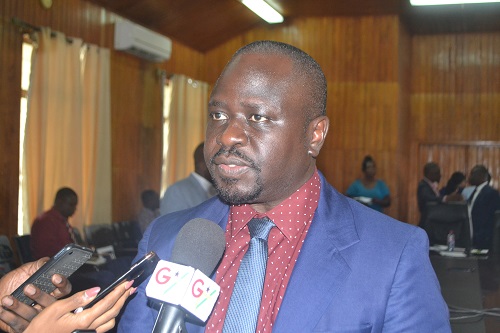
Poor demographic data on the citizenry has been blamed for persistent challenges with implementation and low impact of government policies.
To this end, Professor Stephen Owusu Kwankye, an Associate Professor of the Regional Institute for Population Studies (RIPS) at the University of Ghana, Legon, has advocated regular conduct of demographic surveys to provide critical data for planning and implementation of social development interventions.
Although some data on fertility and mortality were readily available owning to the Ghana Demographic and Health survey, Ghana Living Standards Survey, Multiple Indicator Plaster Survey, among others, he said, data on migration, which was one of the three pillars for projection in planning, was nonexistent.
Speaking yesterday in Accra at a roundtable discussion on the needs and uses of quality population estimates and demographic information in Ghana, he urged the government to prioritise migration survey to generate proper data to support in designing policies.
Organised by the Ghana Statistical Service (GSS), the event brought together government officials, academia, development partners, civil servants, among others, to deliberate how data are used and should be used in their respective sectors.
It was the first of scheduled discussions between the GSS and other stakeholders, including the private sector in preparation for the 2020 Population and Housing Census (PHC).
Professor kwankye said, since 2001, Ghana had not undertaken any migration survey despite the high movement of citizens of neighbouring countries into the country and huge number of Ghanaians emigrating to other parts of the world.
The situation, he added, had accounted for use of bad data and assumptions for projections in planning and designing interventions.
He, therefore, urged the government to seek collaboration with data collectors, private sector, academia and other relevant stakeholders to plan appropriately and make resources available for surveys and census.
The Government Statistician, Professor Samuel Kobina Annim, noted that the PHC slated for March next year, would focus on social demographic characteristics, literacy and education, vulnerable groups, Information and Communication Technology (ICT), fertility and mortality as well as housing and sanitation.
He noted that it would also provide geospatial data which would link the census data to all other surveys and national database for effective planning.
The exercise, he said, would be driven by technology to ensure timeliness, accuracy and reliability of data generated.
The PHC would help in measuring targets in the Sustainable Development Goals (SDGs) as well as the government’s Coordinated Programme of Economic and Social Development Policies 2017-2024, Prof. Annim added.
Philip Smith, a representative of the United Kingdom Department of International Development said data was essential in dealing with poverty in the country as well as assessing the impact of social interventions rolled out by the government to improve livelihoods.
He urged the government to make data collection a key part of the ‘Ghana Beyond Aid’ strategy, stating that data allowed for the creation of opportunities through targeted investment to empower young people.
BY Claude Nyarko Adams







